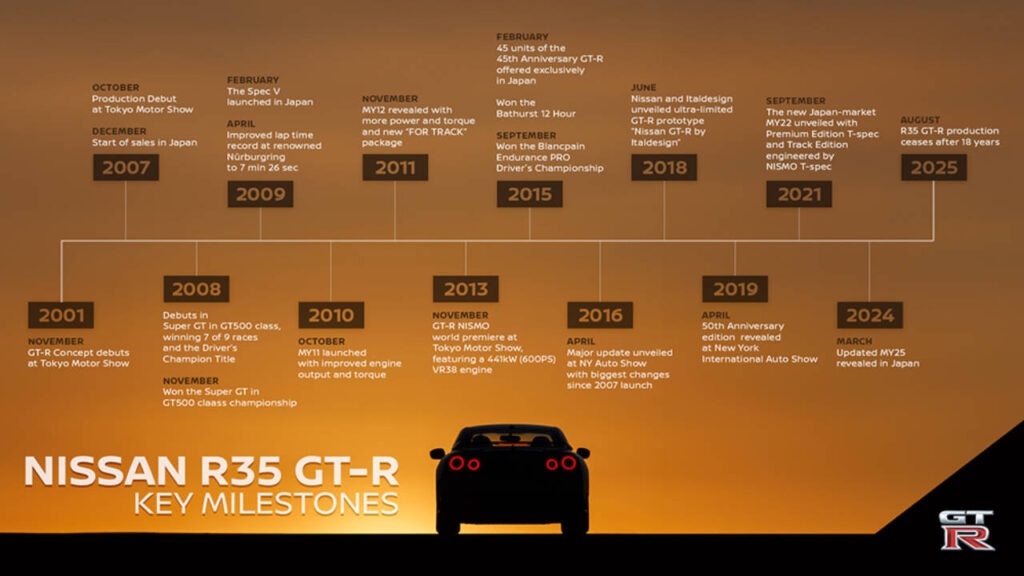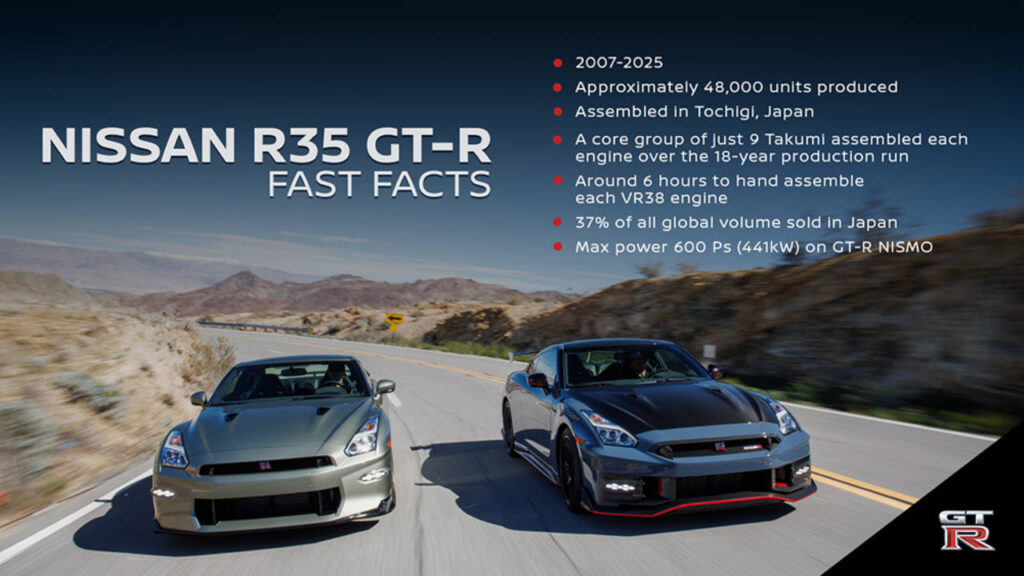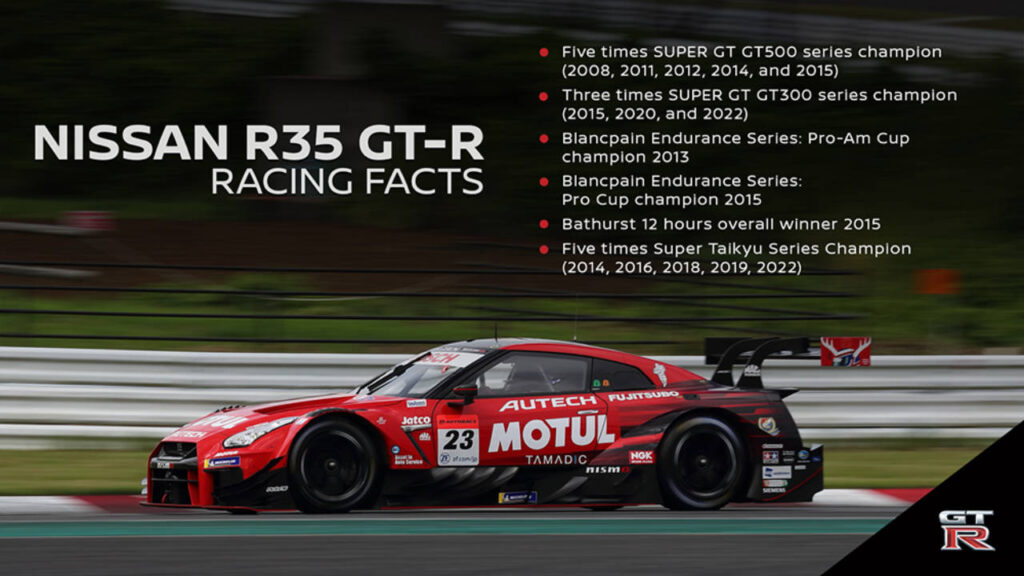Nissan has ended production of the R35-generation GT-R after 18 years, marking the close of one of the longest-running generations in the model’s history. Built at the Tochigi plant in Japan, the final car produced was a Premium edition T-Spec finished in Midnight Purple. This vehicle is destined for a customer in Japan, the last market where the model was still available.

AI Quick Summary
After 18 years of production and roughly 48,000 units, Nissan has ended production of the R35 generation GT-R. The final car, a Midnight Purple Premium edition T-Spec, was built in Japan for a Japanese customer. A next-generation GT-R (likely a hybrid) is currently in development.
This summary was generated by AI using this article’s content.
Read Next
Since its introduction in 2007, the R35 GT-R has become one of Nissan’s most recognised performance models, leaving a lasting legacy. Over the course of its production run, approximately 48,000 units were built. Read about the complete history of the GT-R here.
Development and Evolution
Unlike many cars that follow a typical product lifecycle with one or two major updates, the R35 GT-R evolved gradually. Each model year brought refinements to its drivetrain, aerodynamics, interior comfort, and ride quality.

At launch, the car produced 473hp from its VR38DETT twin-turbocharged V6. By 2017, standard models delivered 562hp, while the GT-R NISMO reached 592hp thanks to race-inspired components and upgraded turbochargers.
Every engine was hand-assembled by a team of nine master craftsmen known as Takumi. Each unit carried a plaque signed by its engineer, highlighting the precision and care that went into production.
Track Achievements
The R35 built a strong reputation in motorsports and track testing. Shortly after its debut, it posted a Nürburgring lap time of 7 minutes 38 seconds, which improved to 7 minutes 8.679 seconds by 2013 with the GT-R NISMO. These times placed it among the fastest production cars of its era. Even now, 12 years later, it remains among the top 10 fastest cars at the Ring, with less than 600hp under the hood.

In Japan, the GT-R NISMO set records at Tsukuba Circuit, with a 2020 model recording 59.361 seconds and a 2024 model further lowering the record to 59.078 seconds. The R35 also set a Guinness World Record in 2016 for the fastest drift, achieving over 300 km/h at a 30-degree angle.
Motorsport Success

The GT-R competed in numerous racing categories, achieving victories in Japan’s Super GT series, the Blancpain GT Series, the Bathurst 12 Hour, and endurance racing in the Super Taikyu series. These results reinforced its status as a competitive machine beyond road use.
The Next-GenGT-R
Nissan has confirmed that this is not the end of the GT-R name. Work is already underway on a new generation, often referred to as the R36. While full details are yet to be disclosed, the future model is expected to adapt to changing performance and environmental requirements.
Reports suggest the next GT-R may adopt hybrid technology, balancing power and efficiency, with a likely release timeframe around the end of the decade. Could this be the next-generation Nissan GT-R? Find out more.
Find the best GT-R for sale in the UAE.
Stay tuned to UAE’s most popular auto blog for more information about the latest happenings in all of the Emirates.
FAQs
Why did Nissan stop producing the R35 GT-R?
Nissan ended production after 18 years to make way for a new generation of the GT-R, adapting to modern performance and environmental requirements.
How many Nissan R35 GT-Rs were produced?
Around 48,000 units of the R35 GT-R were produced between 2007 and 2025.
What was the final R35 GT-R model built?
The last unit produced was a Premium edition T-Spec finished in Midnight Purple, destined for a customer in Japan.
Will there be a new Nissan GT-R after the R35?
Yes, Nissan has confirmed a successor is in development. It is expected to feature hybrid technology and could arrive around 2030.
What engine did the R35 GT-R use?
The R35 GT-R was powered by the VR38DETT twin-turbo V6 engine, hand-built by Nissan’s Takumi craftsmen, with outputs ranging from 473hp to 592hp in NISMO models.
Nissan has ended production of the R35-generation GT-R after 18 years, marking the close of one of the longest-running generations in the model’s history. Built at the Tochigi plant in Japan, the final car produced was a Premium edition T-Spec





